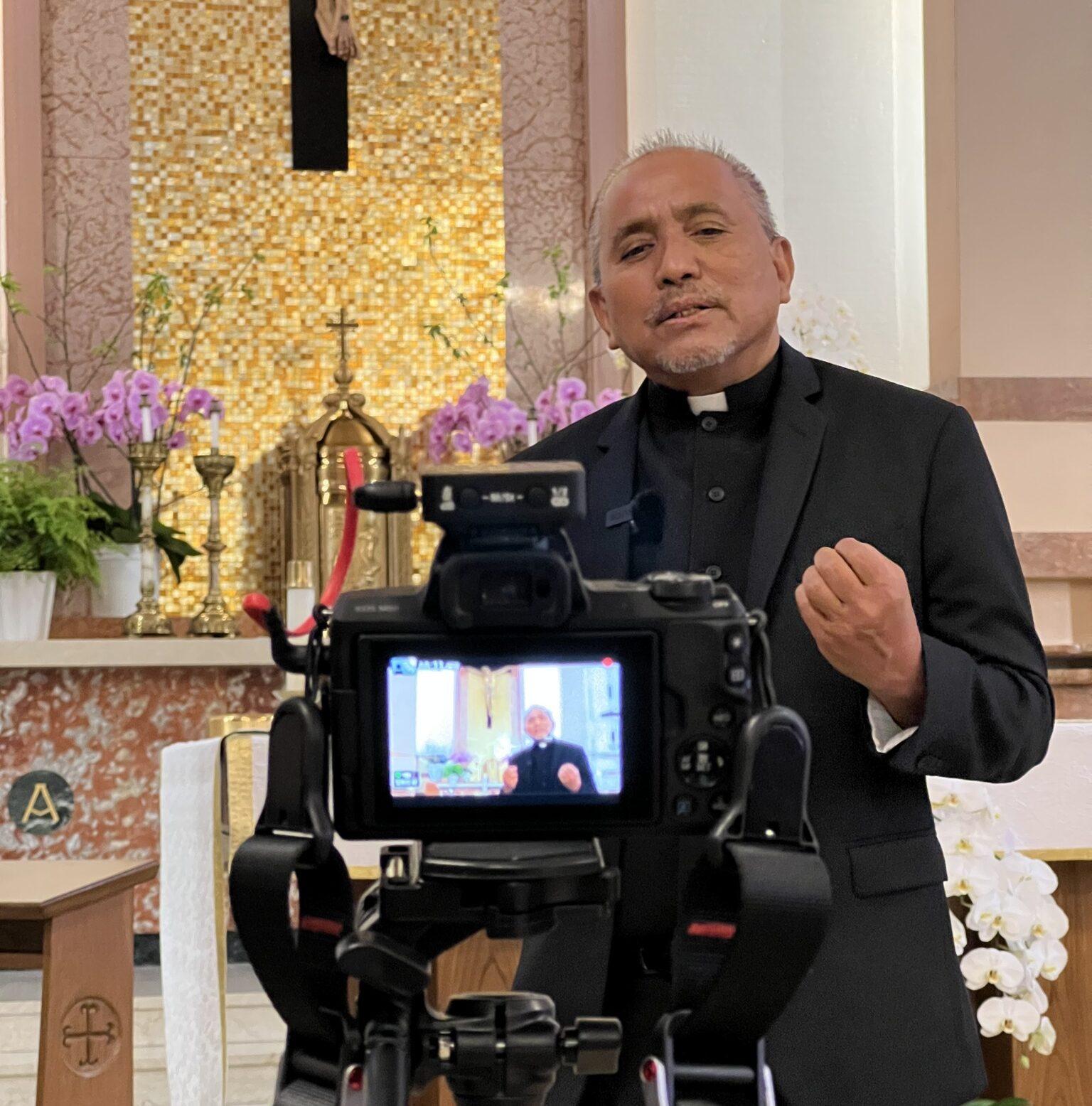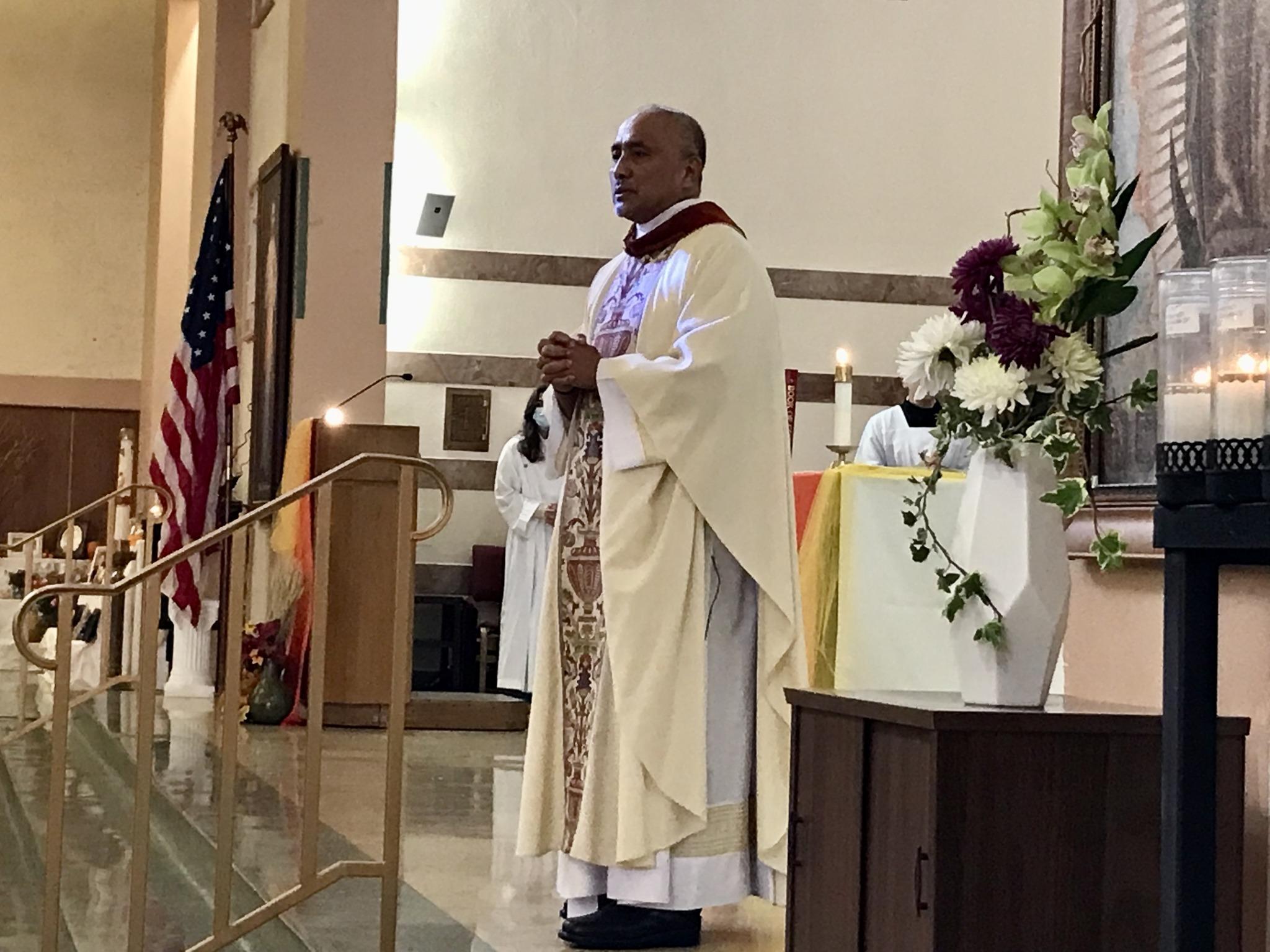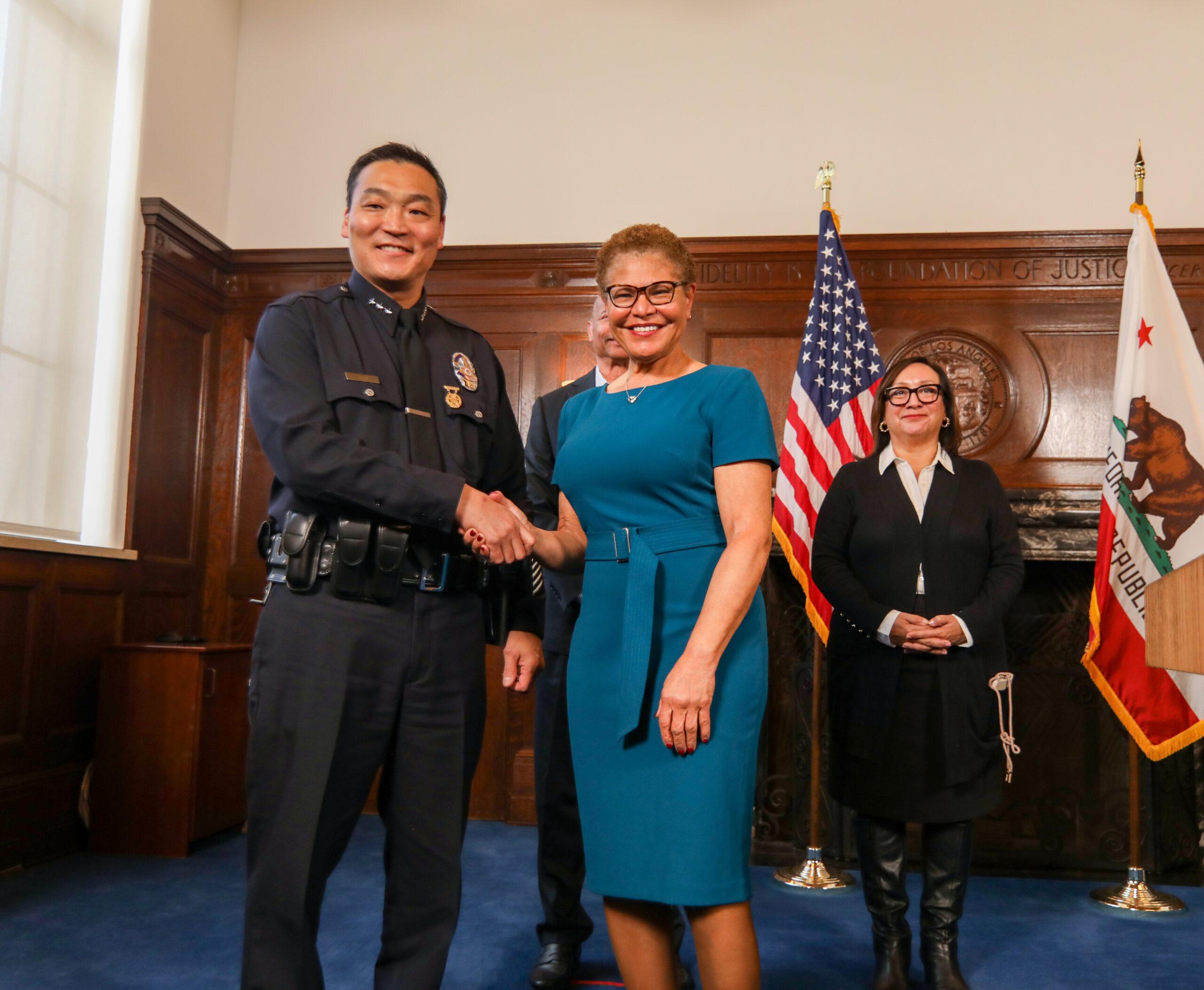
Valuing the ‘community of our humanity’ for the common good: Mayor Bass’ courage, core beliefs, and loving wisdom
“The elder’s invisible productivity, of holding the field, a nonverbal transmission of energy and goodwill aids in our growth. [S/he] carries forward evolution’s higher intentions, stands beside us and blesses us as we struggle to grow beyond our current level of understanding into new light. [S/he] has a dispassionate vision to recognize the fully developed oak tree in our current acorn consciousness. By holding the field – by recognizing our inherent potential, by desiring the fullest expression of our unique gifts, and by empowering us to act through an infusion of loving wisdom – we receive a spark, comparable to a spiritual battery jump, that enables us to embrace our destiny and to move courageously into the future. -Rabbi Zalman Schacter-Shalomi, From Age-ing to Sage-ing,1997
I walked into LA City Hall greeted warmly by the front desk staffers and asked to wait after outgoing Police Chief Michael Moore announced his retirement from LAPD at a press conference.
Two plaques were displayed on top of the right-hand bookshelf.
One is the framed Los Angeles Business Journal’s Cover: “LA 500: The Most Influential People in Los Angeles with Mayor Karen Bass as LA’s New Power Player.”
Another is the framed plaque to the Office of Mayor Karen Bass who received the 2023 Rev. George F. Regas Courageous Peacemaker Award, from the Interfaith Communities United for Justice and Peace (ICUJP). Its organizational theme is “Religious Communities Must Stop Blessing War and Violence.”
The award’s inscription reads: “From her first day in office in December 2022, Mayor Karen Bass has shown her commitment to ending the homelessness crisis in the City of Los Angeles, starting with declaring a state of emergency, and most recently allocating a large part of the city’s budget to the issue and going forward with the innovative ‘Inside Safe Initiative’ demonstrating how a city government can respond to a crisis with clarity, effectiveness, and compassion.”
Eduardo Soriano-Hewitt, a city hall staffer who has served four mayors in his professional city career of 20 years: Hahn, Villaraigosa, Garcetti, and now Bass, shared this insight.

“Mayor Bass is strategic, analytical, and focused. She’s not hyper-focused on the pageantry nor obsessed with the flashiness of being a big city mayor. She’s focused on making a difference. She’s focusing on bringing our city together to tackle the most challenging issues of our time,” he said. He is currently the Chief of Public Engagement Strategies in the Mayor’s Office of Public Safety.
I hardly expected this synchronicity of an insider’s observation with outsider recognition of Bass’ moral, quality-focused, service-oriented, and courageous leadership!
Especially right after her first year anniversary as mayor on Dec.12, 2023, Los Angeles Magazine, wrote: “Bass has hit it out of the park. She’s been a slam-dunk. She’s a 10 out of 10.”
Trevor Noah said, “In 2022, Bass upset a well-financed opponent to win the election and return to the city where her activism began.”
Meanwhile, the Los Angeles Times reported: “Bass’ political brand is built on coalition-building and pragmatism, and those skills surely served her well during the days of discord [School Strike Mediation between SEIU Local 99 and LAUSD]. In another hallmark of her style, she also remained largely quiet in public during the tense period of negotiations, saying Friday that ‘grandstanding and speaking publicly when things are being hashed out does not benefit anyone. What was important was getting the work done and getting the job done,’ Bass said.”
LA Times Opinion: “Los Angeles mayors have no official authority over local schools, but they have a big stake in their success. And the kind of political capital that can make people listen. For that reason, Los Angeles was fortunate that Mayor Karen Bass stepped up last week to mediate a labor impasse between LAUSD and 30,000 low-wage workers that shuttered schools for three days.”
CalMatters: “Mayor Bass did many things right. Officials estimated a month or more to reopen the freeway, and she came in ahead of time – it’s always better to be early than late. She was visible and available for questions, underscoring her promises of transparency. She put her image and reputation on the line, so the rapid success became her success, though she was happy to share credit with other leaders and agencies involved. She credited the quick work to “urgent action at all levels of government,” and managed to boast nimbly, not using her own name but broadly including herself as among those deserving credit.”
San Fernando Valley Business Journal: “I spend a good chunk of my time complaining about the things the city of Los Angeles is doing wrong – from single-handedly attempting to destroy our hospitality industry with a half-baked proposal to put the homeless in hotels to a City Hall that seems to run rampant with questionable activities – so it may seem odd that, today, I actually want to commend the mayor and her administration for a job well done. But then again, credit is due where credit is due.”
Rabbi Zalman wrote the opening quotes that I start this piece with, underscoring the prescient profile of an individual like Mayor Bass who views intractable social issues as solvable, by Los Angeles linking arms.
That radical optimism in the “community of our humanity,” seems to fit Los Angeles’ name, a city of angels.
Could it be that her deep optimism comes from recognizing Mahatma Gandhi’s core belief that the world has enough for everyone’s needs, but not for everyone’s greed?
Courage to defeat a billionaire, with diverse communities supporting her core beliefs
City of Los Angeles is the creative capital of California with Hollywood as one of its creative assets. It is known for its convergence of snow-covered mountains, especially after the rains, and its coastal communities populated by enthusiasts of bicycling, roller-skating, walking the trails, gymnastics, painting, singing, playing instruments, weight lifting, dancing, and even kite flying.
LAX is one of the nation’s and the city’s busiest airports and the city has its own Department of Water and Power, generating utilities for household, business, and commercial use. While, the Port of LA is the site for the logistical transfer of commodities, from overseas.
Disney Hall is its famous concert hall, where worldwide acclaimed Maestro Gustavo Dudamel, including earlier Maestros Esa-Pekka Salonen, and Zubin Mehta, conduct first-class concerts.
LA is also home to Colburn, the West Coast ‘Juilliard’ training school for dancers and musicians. It has over a hundred museums dedicated to art, science and technology, the well-visited Academy Museum, near LACMA; and the Japanese American National Museum in Little Tokyo, among others.
We have a lot to be proud of in this city, including our current Mayor Karen Bass, yet its social issues, while present in other cities, have become LA’s brand.
Social issues bred by misdirection followed by transformative community changes
In previous decades, LA was notoriously known as the drive-by city for gang-related killings, that the media popularized as such. After the Rampart scandal, LAPD headed by Chief Bernard Parks was placed under a federal consent decree establishing a baseline, a legally binding performance improvement plan, which affected its anti-gang unit. It finally ended nearly a decade on July 17, 2009.
In 1981, President Ronald Reagan transferred the care of mentally ill patients to the states and federal spending on mental illness declined. The irony was that when Reagan was governor of California, he signed the Lanterman Act to provide modern mental health services in 1967, which also included the care for the developmentally disabled.
This became the starting point of unhoused folks living on the streets, some of whom were veterans and folks with mental illness, displaced from the closure of mental health hospitals.
Citizen Karen Bass wrote to the LA Times in 1989 about the cocaine war and alcohol addiction in South LA. She described the deterioration of the quality of lives amongst Black Americans, who had lost their jobs from permanently closed automobile manufacturers. It became desolate made worse by the high dropout rates of Black youths from high schools, who found gangs luring them to fast bucks by drug dealing.
In the 1990s, in a 71.3 square mile radius — where 35% Blacks, 65% Latinos had a median income of $21,000 – there were 700 liquor stores, even more than Rhode Island, a state of 1,045 square miles. It was accompanied by drug dealing in nearby fast food chains, including an open display of prostitution, and degraded quality of life with jobless men slumped on their front porches, feeling helpless.
Bass dared to act along with a coalition of caring non-profits and residents. She obtained a federal grant of $4 million to do a study on South Central’s drug and alcoholic addiction and years later, a property was rented to her organization by LA City, to find solutions to these social issues.
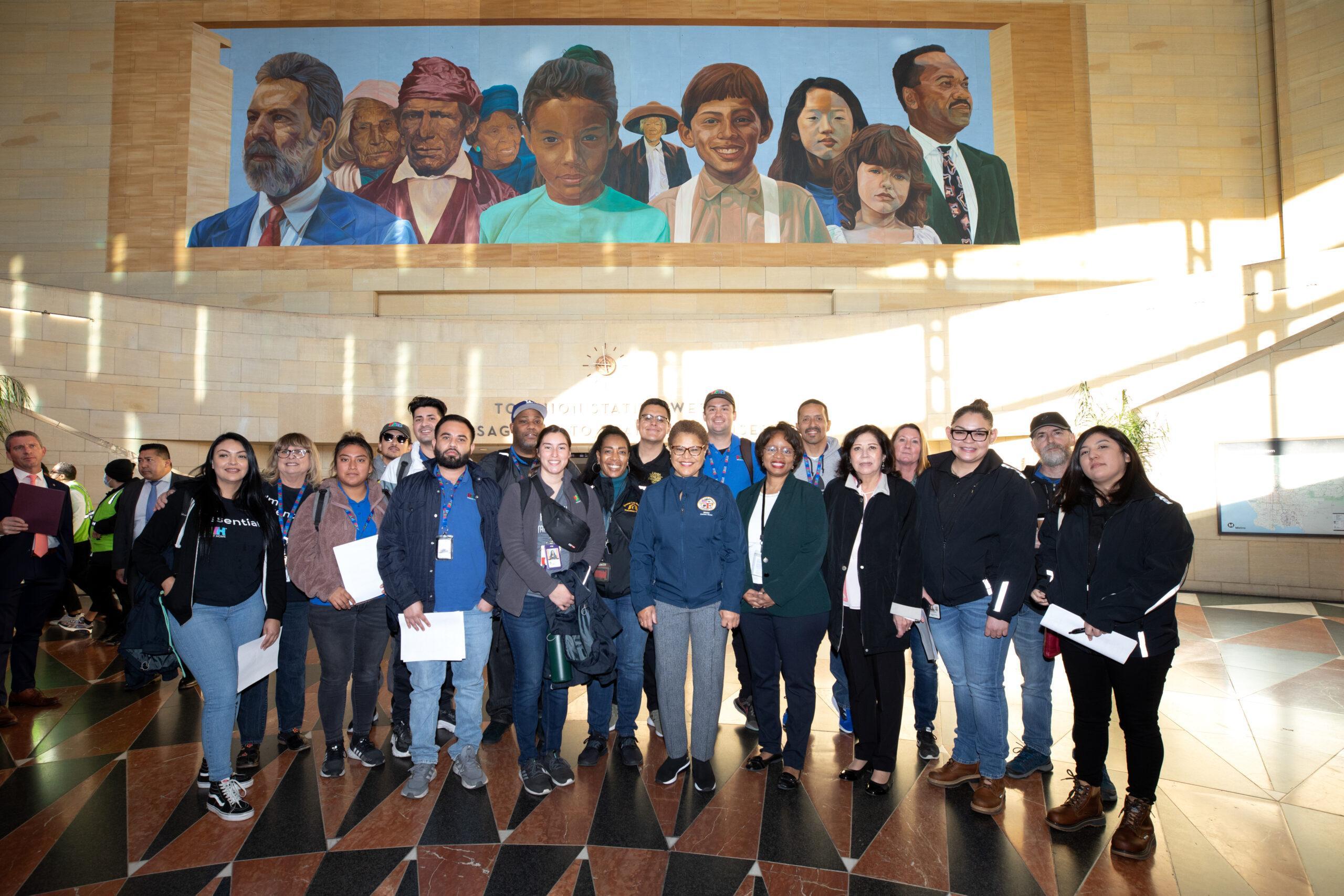
Bass founded Community Coalition (CoCo) a non-profit that succeeded to empower community folks, the grandmothers, the parents, even high school students to use their voices to influence positive policy changes.
With its foundational growth assisted by USC for five years, the Center for NonProfit Management in developing the organizational capacities, and board members who became mentors to Bass, CoCo grew. It exists today to listen to more stories, to share them, and to empower residents to advocate for more reforms and policies. CoCo led a campaign to repurpose land use from businesses that fueled the addiction into positive community centers, more supermarkets that offer fresh produce, including laundry mats.
Sylvia Castillo, Bass’ former colleague at CoCo, described the organizational success: ”It is her character, her compass and staying true to that, she sits across from the table – you know who I am and you know who we are…I am only here because you all told me. You are the anchor in our people’s work.”
Historic campaign for mayor: Diversity is her oxygen
Homelessness became a jarring issue with folks on the streets, unhoused, their meager possessions contained in a train of shopping carts.
Groceries resorted to a “brake” technology preventing the carts from leaving their premises.
Tents were resorted to, resulting in encampments, expanding in reach beyond South LA, skid-row downtown, to Brentwood, Koreatown churches, vacant lots to be developed, the Valley, even near the Venice Canal and underneath freeway bridges.
Flyers insinuating homeless folks were garbage to be “swept up and cleaned up,” were mailed by Mayoral Candidate Rick Caruso into voters’ homes, promising to sweep up homelessness and increasing policing. I got that flyer.
His campaign criminalized the unhoused, poor not by choice, but nurtured by structured industry and government failures.
It was a historic campaign for mayor that Karen Bass won.
At the end of the primary, PBS SoCal reported: “Caruso ended up spending an average of $176 for every vote he received, Rep. Karen Bass, who netted more primary votes, spent an average of $11.79.”
Caruso had actually spent $110 million, a corrected amount I got from Mayor Bass, who had raised $9.7 million, a ratio of 8.9 to 1, while the primary saw a much higher spending ratio of 14:1.
If one considers Los Angeles’ diversity, “that LA residents speak over 224 languages,” as the U.S. Census reported, running for mayor might have been insurmountable.
550,000 LA City voters came out to give Karen Bass a 10% margin win, who mobilized a diverse grassroots campaign, while five billionaires supported Rick Caruso.
It was a movement campaign, which Jenny Punsalan Delwood, Bass’ deputy chief of staff described, prompted by the Mayor, to share her insights.
“At the heart of Mayor Bass’ campaign, in terms of her operating style and her genuine core belief in the power of the people, we are able to say, we are going to run a campaign that truly listens but also showcases the power, the beauty of, and the diversity of Los Angeles. When that‘s the core, people come and they show up, they bring their friends, they host pop-up canvasses in their homes, and house parties in their communities. Mayor Bass ran a campaign centered on the unity and diversity of Los Angeles,” Delwood shared.
It was not surprising to find many “Davids” in the ethnic communities who defeated the Goliaths billionaires’ infusion into the multimillion-dollar Caruso’s campaign. It communicated the power of the people, and as Bass said, “That became my oxygen. I enjoyed campaigning.”
She recalls a similar movement campaign when she ran for California’s 37th Assembly District in 2004.
Bass served in the state Assembly from 2004 to 2010, serving as Assembly speaker during her final term.
I thanked her for saving state jobs, including mine, as part of the State Department of Public Health, instead of resorting to the default cuts that Governor Arnold Schwarzenegger wanted, fearing recall from conservative constituents.
Fellow Republicans whom she worked with, recognized Bass as kind, patient, and respectful. She was the only woman in a Group of Five, as Assembly speaker, who was part of the difficult budget negotiations to resolve the state’s budget deficit. Some of the deficit cost-cutting measures were rest stop closures along major state highways, including the closure of California’s jewel park, Big Sur.
Years later, the state recognized that their deficit-compelling decisions cut into their income streams. They later sponsored renovations of rest stops, the use of developmentally disabled in maintenance, and initiated state parks improvements, increasing visitors.
Accountability and public trust: the currencies of her public service
I shared with Mayor Bass that she was a trustworthy congressional representative whose currencies were accountability and public trust, derived from regular conference calls, and in-person town hall meetings, as well as reporting back to her constituents on what she has done on their behalf.
As a representative for the 37th Congressional District serving from 2010 to 2021, she regularly held accountability meetings.
My neighbor and I attended, hungry for information that we could trust, particularly during the tenure of the 45th former U.S. president, whose media releases were lacking in facts.
The Washington Post catalogued “more than 22,000 false or misleading statements in nearly four years of [Donald Trump], including 189 on a single day in August, as published by the New York Times on Nov. 3, 2020.
One key conference call that I remember involved folks hearing the latest about the social security cuts, proposed by the former 45th U.S. president. He consistently infused national conversations with cuts to social security, creating unnecessary fears on seniors with limited incomes.
7,000 participated in that conference call.
In an aspirational tone, Mayor Bass asserted: ”I want to do that again. Before you know it, there will be another campaign. I don’t want to wait. I want to go to the people now; I want to do a one-year accountability report. I don’t want to be somebody who just shows up at the next campaign. I mentioned that a couple of times, and I want that scheduled.”
Two staffers were present during the hour-long interview with the Asian Journal, and her deputy chief of staff responded, “It will be done.”
It is at this point that I shared my intention behind this interview – for the Asian Journal and our Filipino American community to know the essence of Mayor Karen Bass, even before the next round of campaigns.
It is in this circle of accountability, with staffers listening in during the interview, being reminded of what the mayor wants done, while in the presence of the press, that I realized that her currencies of truth and accountability are really her daily habits, even her several decades-long code of ethics, and her code of responsibility.
“Our lives are about social change,” she said, looking to me. I nodded as for five decades now, it has been the life’s mission of my husband and mine to serve the people.
For disclosure, my husband, Enrique serves as one of the Human Relations Commissioners in LA City.
Annie Nepomuceno, president of the United Chambers of Commerce, member of the Fil-Am community, a business entrepreneur, and a musician, attested to the mayor’s accountability:
“I had the privilege of interviewing Mayor Bass at the 17th annual luncheon of the United Chambers of Commerce.
360 folks came to the Skirball Museum. She spoke of the San Fernando Valley’s economic health at other events, but this time, on a one-on-one interview with me, discussing safe streets, building housing for all income levels, and increasing transit accessibility.
Seeing firsthand how in demand she gets, that her presence is important to many, she has the most efficient staff that plans and manages her time down to the minute, so she may make the numerous appointments, daily. It seems that she masters conserving her energy when she is out of the public eye, as she seems on point and very present in the conversation.
Her team has been reaching out to the United Chambers more than ever. From her Deputy Mayor for Economic Development to the Community Engagement team and many others in between, I can see the emphasis the Mayor has on what her constituents have to say. We value their efforts in fostering strong partnerships and appreciate their dedication to ensuring the economic vitality of Los Angeles.”
On homelessness affecting Filipino Americans
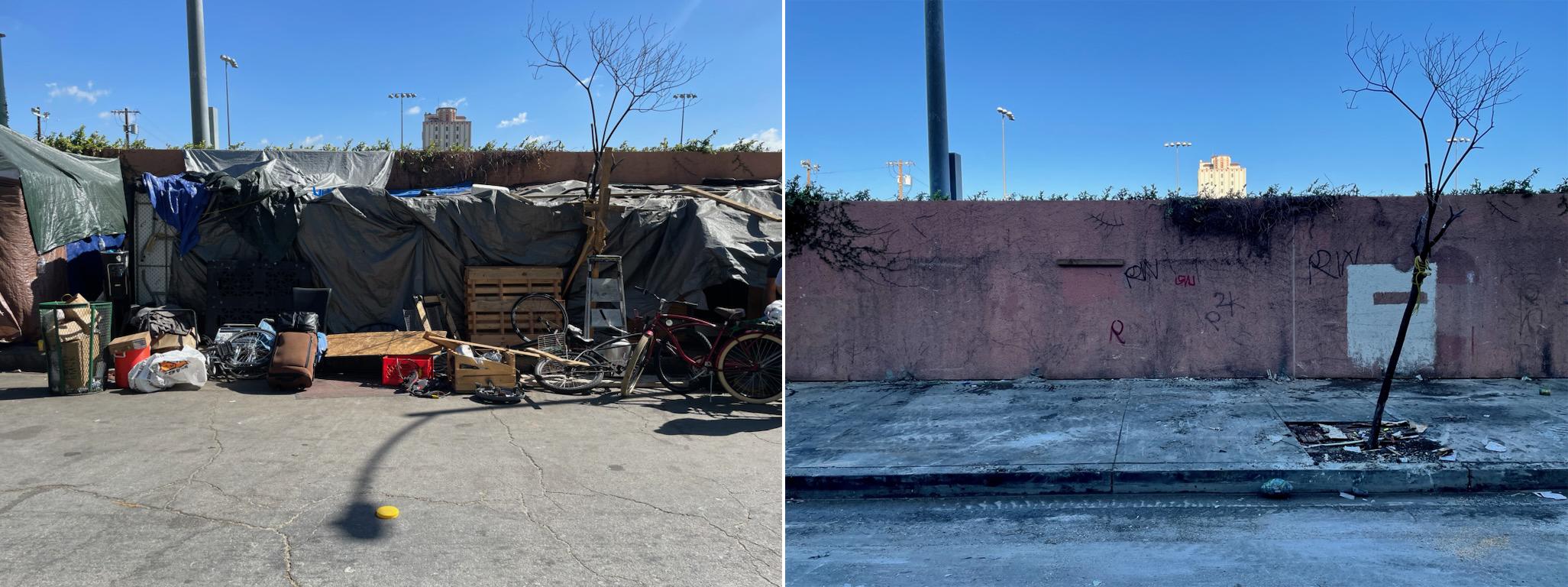
Rose Ibañez, member of LA City Mayor’s Transition Team following Bass’ victory, shared how she saw an encampment of unhoused Filipinos.
“After working for decades as a City of Los Angeles employee (currently retired) for the unsheltered community, it was heart-wrenching to be faced with an encampment with the largest number of Filipinos, 20 families, near a middle school. Not immune to this housing need to secure a job, we also saw additional cultural and language barriers they were faced with. With the support of many partners: Mayor’s office, City and County departments, social service agencies, and community volunteers working together, these unhoused Filipino families are now in transitional housing. We will continue to assist the most vulnerable and in need, as community volunteers,” said Ibañez.
Ibañez was describing her firsthand encounter of the encampment that was referred to us by Cecile Ochoa. Ibañez called Deputy Chief of Staff Delwood, who got Eduardo Soriano-Hewitt involved.
When Soriano-Hewitt made his visit, he was devastated to see how folks lived, and distraught that they were without a safety net, and without a job. He cried that evening and vowed to do more for them.
The city of LA delivered: 20 families got their temporary housing. Persistent calls of follow-up came from concerned Ibañez, a resident of Carson.
The Filipino Channel’s Steve Angeles documented the transition of this encampment of 20 families on television, broadcasted around the world in their news segment. Now in transitional housing, these folks can begin to look for a job, for without an address, they cannot even apply.
During the Mayor’s interview with Trevor Noah, she informed the listeners that these unhoused families will stay in transitional housing for 24 months until permanent housing can be secured. She identified structural barriers in the use of federal housing vouchers and she negotiated with HUD to remove the barriers that made no sense and to qualify these unhoused residents, primarily veterans whose military pension became a barrier to using federal housing vouchers.
By the end of Mayor Bass’ first year in office on Dec. 12, 2023, 21,000 folks had been moved to temporary housing, with 3,000 into permanent housing. During her campaign, she promised that 17,000 would be off the streets.
Around Thanksgiving 2023, a conversation topic amongst our family was the prevalent and pervasive encampments. We were concerned about the rains forecasted and how exposed they were to chilly winds and rains.
By Christmas 2023, these encampments had been vacated. The streets had been cleaned up, and the sidewalks became accessible public squares. It gave us all a chance to exhale.
Like Soriano-Hewitt, we are affected by suffering.
Like Mayor Bass who saw blood, guts, lost limbs and lost lives, firsthand as a physician assistant and then a nurse, she is not beyond feeling the pain and suffering.
Castillo recalls that they [Bass and Castillo] would be in a meeting and “we were somewhere and she turned to me – we have to do this. Our people are dying on the streets. The intensity of malformed inhumanity, that she is reminded of the slave ships. For her, it is not leadership, we are doing this. It is leadership based on her values and her deep love for the people. She’s clear on who she serves. We are here and our life’s purpose is that we are committed to each other to move forward…all of our work is an adjunct of that. She has the light and sees light in others. Ask the people who do know. That’s is her leadership style.”
“Suffering ceases to be suffering at the moment it finds a meaning, such as the meaning of a sacrifice,” Victor Frankl wrote in his book, “Man’s Search for Meaning,” in 1959.
We still find our city of LA in this state of suffering from those unhoused.
“His book is a meditation on the irreducible gift of one’s own counsel in the face of great suffering, as well as a reminder of the responsibility each of us owes in valuing the community of our humanity,” Patricia Williams said in praise of Frankl.
For us in LA, we are comforted by a new ethos, a new insider culture of caring, responsive, accountable, effective City Hall, from the Office of Mayor Karen Bass and its constituent departments, council districts, commissions and various departments.
We, the citizens, hope we can mirror the same care and concern for our neighbors and communities.
A paved alley, working street lights, trimmed trees, and well-maintained roads are all indicators that we all care for one another and we trust our city government works for its residents.



